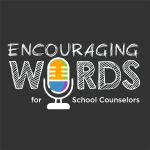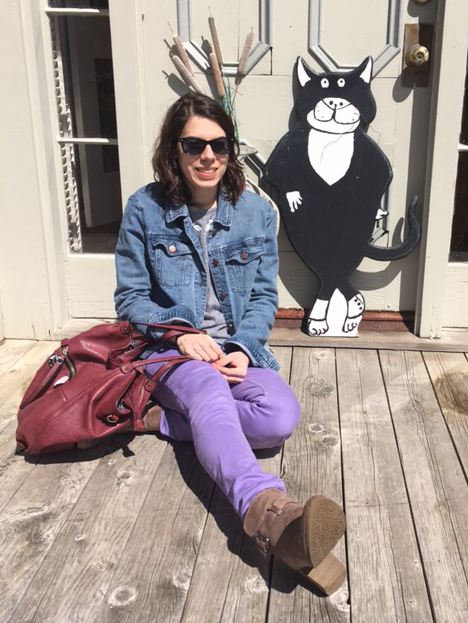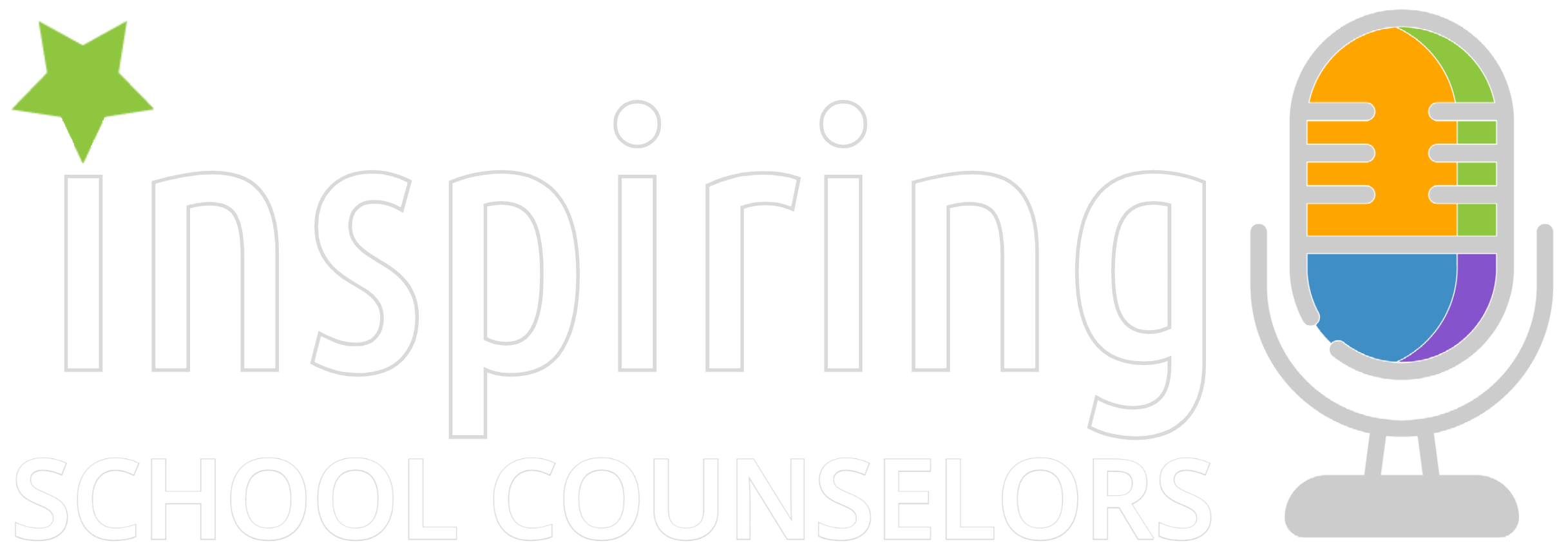Developing trust between a student and the school counselor is the key to connecting with kids. This week’s guest shares TWO creative ways students are deepening connections with caring adults.

This Week's Storyteller
Laura Guido began her career working at non-profit organizations and as a School Counselor at the high school level.
Over the last few years Laura has been working in corporate Learning & Development, which led her to her current role as a Program Engagement Manager at Gaggle Therapy.
Outside of work Laura loves to cook, read, and travel.
You can reach Laura on LinkedIn.

Share YOUR Story!
 Do you have a touching or funny (or both) story about school counseling? We want to hear it! Drop us a line or record your story with our online Sound Booth.
Do you have a touching or funny (or both) story about school counseling? We want to hear it! Drop us a line or record your story with our online Sound Booth.
If you have questions or need help, let us know!
Subscribe
Encouraging Words for School Counselors is also available on these podcast apps and others. If you can’t find the podcast on your favorite app, let us know and we’ll make sure we get there. If you prefer to listen in your browser, visit https://inspiresuccess.org/podcast every week for a new episode. For new episode notifications and more, follow Inspire Success on Facebook, Instagram, or Twitter.
Transcript
Matt Fleck:
Hi, everyone! Welcome to a new week, a new school year, and a new edition of Encouraging Words for School Counselors – the five minute podcast from school counselors about the art and practice of school counseling. I’m your host Matt Fleck with Inspire Success. Thanks for joining us.
As a school counselor, do you ever feel like you have to get kids in and out of your office as fast as possible? Sort of like a factory? “I HAVE to see six students before the end of the day…line ‘em up.”
That’s how it felt for Laura Guido who was director of guidance at a private school in Massachusetts before it closed its doors a few years ago. As a counselor there, Laura found a variety of ways to connect with her students – using coloring books, games, candy – things lots of us use to break the ice when students come in. But one time Laura created a list of books for a reading challenge she was doing at school and put the list up right behind her in her office. Several students who came in asked about the list and what Laura was reading and soon it became a creative new way for her to connect with students without talking about an issue or a problem.
Laura Guido:
This went on for a couple months. And then one of my senior girls, you know, we would talk about how I was reading a lot of feminist literature and I was following a feminist book club. She kept asking me about the books. And I said, why don’t we start a book club for, you know, obviously it’s going to largely girls that are showing up (it was all girls, of course), but we started this feminist book club and I think I ended up maybe 15 to 20 of the mainly senior girls — sometimes juniors would come — and it was fantastic because it served so many purposes for me. It ended up being one of the best things that I think I did in any of the schools I was at, even though it didn’t fall under the jurisdiction of the counselor responsibilities.
Matt:
Laura found that the girls in her book club were from different social and economic groups but the love of books allowed them to interact, and connect with each other in ways that were…novel, so to speak.
Laura:
One of my things that I care about deeply that I’ve always brought to the role is trying to build confidence in teenage girls and motivate them. So that was a huge piece, giving them voices, talking about difficult topics. It brought together the girls that weren’t necessarily friends, but I think it brought them together on like the feminist piece of like women joining together and supporting each other, which I loved. And a great thing was that it brought girls in that I might’ve not had as strong relationships with. Some girls would come see me every day. And we had strong bonds that had developed over the years and they knew me well, but sometimes they’d bring a friend that was still kind of associating guidance with, like, “I’m in trouble,” or, “I’m applying to college.” I’d see them once a quarter and it brought them in and I got to know them better. So then they were coming to see me more to talk about real issues and not just the college applications.
Matt:
Laura was able to use something SHE loved – reading books – to connect with more students. And that simple act of being real, being herself, allowed her to connect with students in new and different ways.
Laura:
I tell people that’s my counseling style. Sharing who I am, sharing my stories. You know, obviously, too a point when you’re working with kids, but I find that’s what builds trust. The worst thing is when you are just like the administrator, they don’t know anything about you. Like, they need to know things. It helps them build that trust and that allows them to open up and communicate.
Matt:
When Laura’s school closed a few years ago she started looking at various education organizations online and became intrigued with a program and company called Gaggle. Gaggle started by producing software that screens for at-risk content for devices students are using at schools – then flags the content and contacts the school districts so they can follow up. But Covid allowed the company to look in a new direction and start a new program called Gaggle Therapy.
Laura:
What Gaggle Therapy does is: we’re matching up students with therapists for virtual teletherapy sessions. So these sessions are usually taking place once a week. They’re about 45 minutes. What I love about the virtual piece is that it’s taking down a lot of those barriers in terms of location and scheduling. They can do it at home. They can do it at school. In my role as the program engagement manager I am working with the students and their families, but I’m also working with the counselors on the other end.
Matt:
One benefit is that there is no cost to parents and students don’t have to qualify for insurance to participate. Districts cover the cost either through a retainer or a blanket coverage option. And Laura not only helps schools find ways to work through technology issues and limited internet access, she clears a way for more students to connect with caring adults.
Laura:
Which is great to me that I’m still working with staff and families and students and just helping to make those connections.
Matt:
We have a link to Laura’s LinkedIn account if you have questions or want more information on our website at inspiresuccess.org/podcast.
So here’s my challenge to you: What’s your favorite beginning of the year story? I have a few of my own, but I’d much rather hear YOURS. It doesn’t have to be long or detailed or funny, and it takes just a moment to share it with us either by email at matt@inspiresuccess.org – or by recording a short message using our online soundbooth at inspiresuccess.org/soundbooth.
Thanks for listening this week. Thanks to those of you who tell your friends about the podcast. And thanks to Lilly Endowment for its generous support of school counseling and this podcast.
Have a great week. See you next time!
